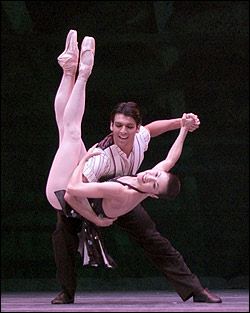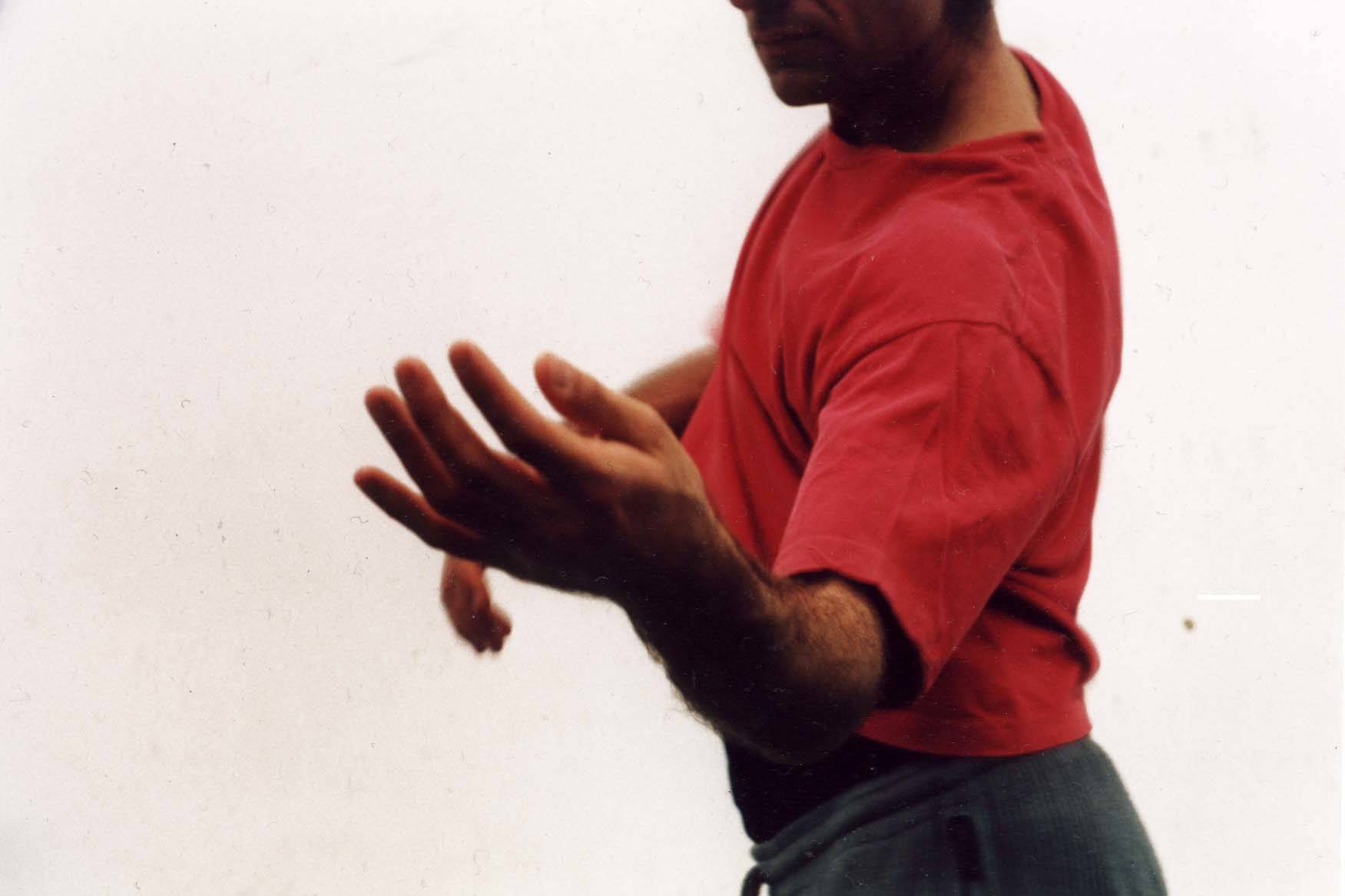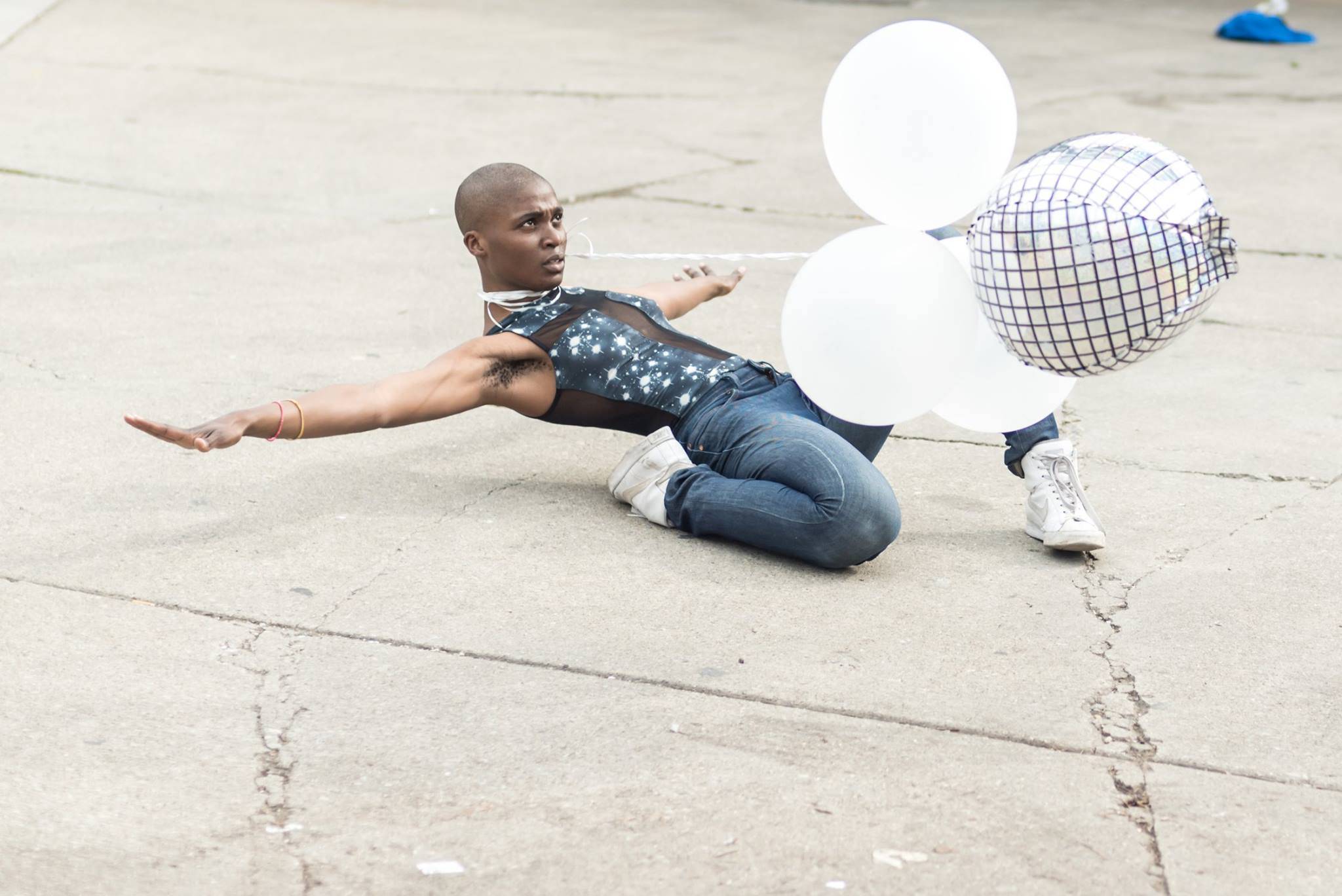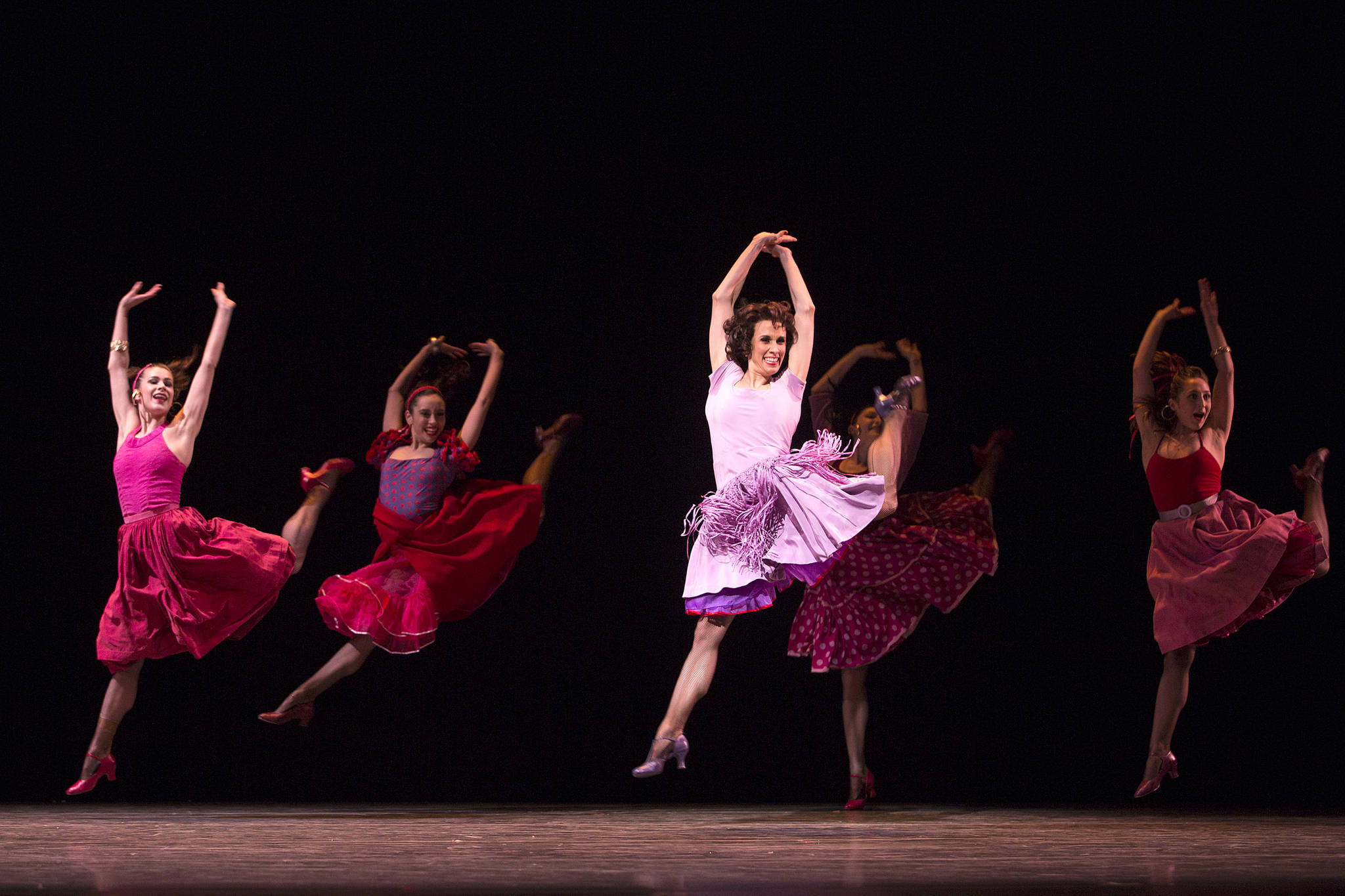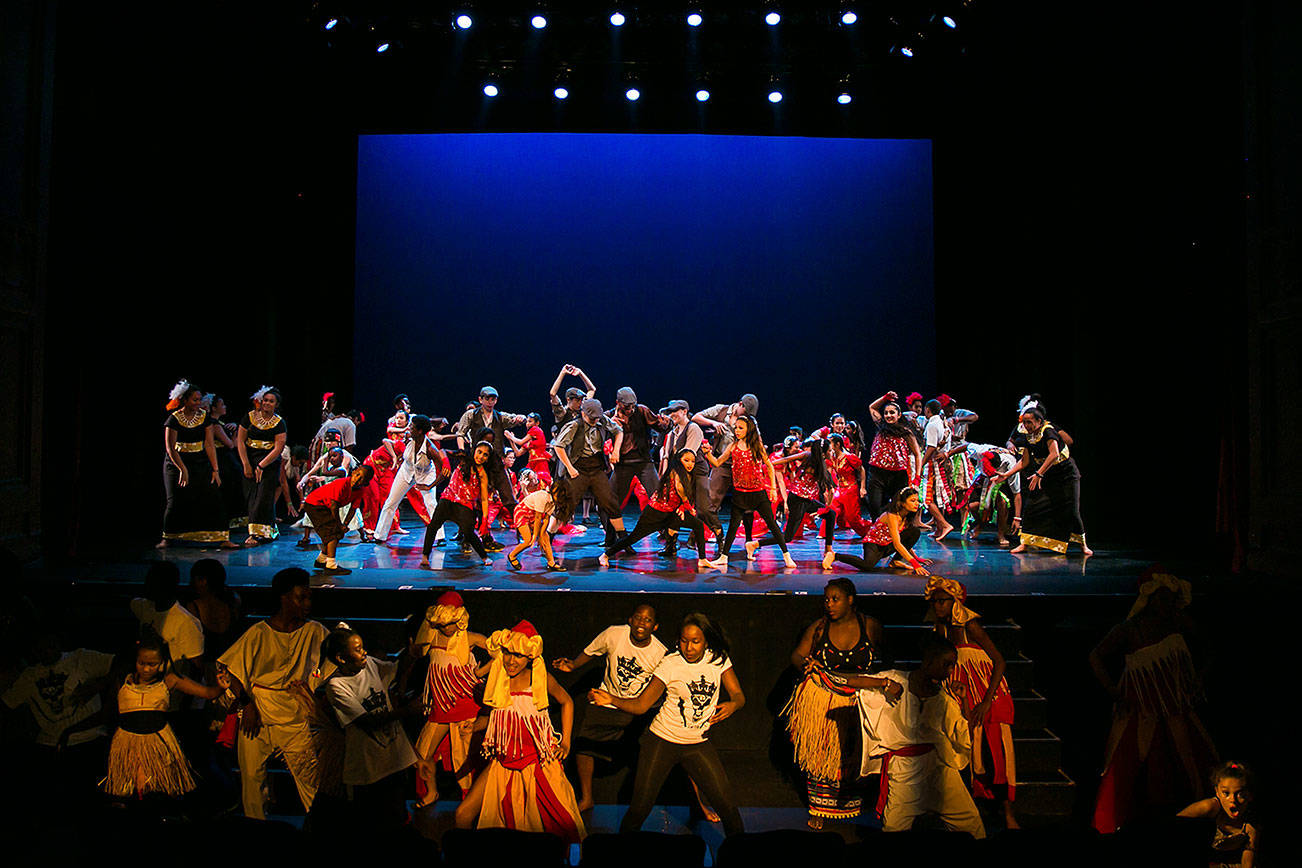When Kent Stowell made Silver Lining (at McCaw Hall through Saturday, June 11; 206-292-ARTS) to celebrate the 25th anniversary of Pacific Northwest Ballet in 1998, he set out to create a work that would include every member of the company in the festivities. A genial ballet set to music by Jerome Kern, it exemplifies most of the strengths of Stowell’s dances, and is a logical choice to close out his career at PNB. He likes to fill a musical phrase with movement and the stage with bodies, and this ballet draws on every dancer PNB has, plus a few extras.
All those bodies show the imprint of Francia Russell as well—many of them are products of the school she has directed and the curriculum she devised. Alongside her skills as a stager of works by George Balanchine, she has been a masterful teacher and coach. Between the two of them, Stowell and Russell have seen over 100 dancers come through their company, and they have fussed over them all, helping guide their progress in a field that often eats people alive. The current troupe is possibly the strongest yet, and this last series of performances gives the dancers an opportunity to cut loose and play.
Compared with some of the grueling challenges earlier in the season, Silver Lining is a cakewalk—literally, on occasion—though, propelled by the emotional atmosphere of the Stowell/Russell exit, everyone is dancing full-out. Company stalwarts Patricia Barker and Jeffrey Stanton are charmingly cool in their impersonation of Ginger Rogers and Fred Astaire, with Stanton obviously reveling in his tap solo. Mara Vinson seemed to begin the season a bit intimidated by her promotion to soloist, but she’s been gaining the confidence to go along with her skills. Dancing with Jonathan Poretta here, she matched his sassy attitude and buoyant phrasing. Poretta, meanwhile, has energy enough for two or three dancers, but doesn’t let it carry him over the top into hysteria—his attention to detail, whether it’s sniffing his boutonniere or offering his hand to his partner, helps focus his enthusiasm. Carrie Imler often dances alone, as if she doesn’t need the support of anyone else, and in a tongue-in-cheek rhumba to “The Night Was Made for Love,” she flirts with a bevy of chorus boys, but sways off by herself at the end. Noelani Pantastico and Christophe Maraval are also strong solo dancers, but their partnership seems to have become much deeper with these performances, their phrasing both highly nuanced and impressively natural. Olivier Wevers and Louise Nadeau have no difficulty playing prince and princess when the roles call for it, but their tempestuous duet to “Whip-Poor-Will” is anything but regal as they wrestle with each other. Jodie Thomas is small and frequently cast in perky or fragile parts, but her dancing in the adagio “Smoke Gets in Your Eyes” is self-possessed and strong. Nicholas Ade, who seems to specialize in “friend” roles (friend of Romeo, friend of Prodigal Son) is, as usual, a stalwart partner and engaging presence.
Stowell doesn’t attempt to create an overarching plot or theme for Silver Lining—it is unabashedly just a series of numbers. But then, so are many of Marius Petipa’s ballets from the classical period. And though this gives the evening a feeling of multiple finales, it’s very clear that it isn’t over until Stowell and Russell come onstage at the end of the curtain calls. There’s one more party scheduled, a “tribute performance” on June 12 (including a special staging of Balanchine’s Liebeslieder Walzer), but this feels like the real farewell, a goodbye to 28 years of making ballet in Seattle.
